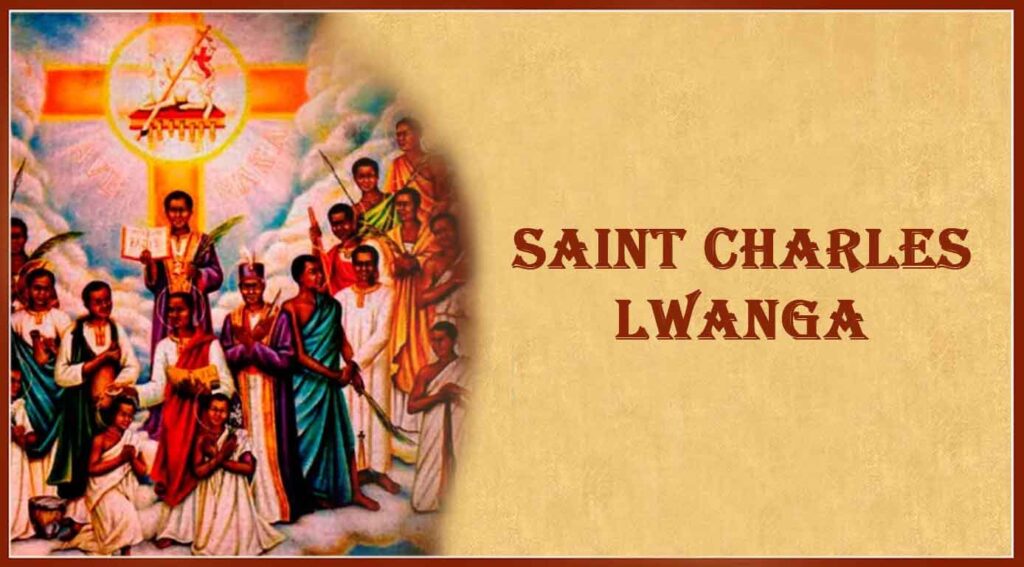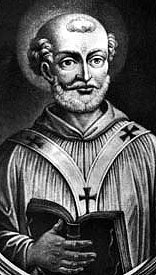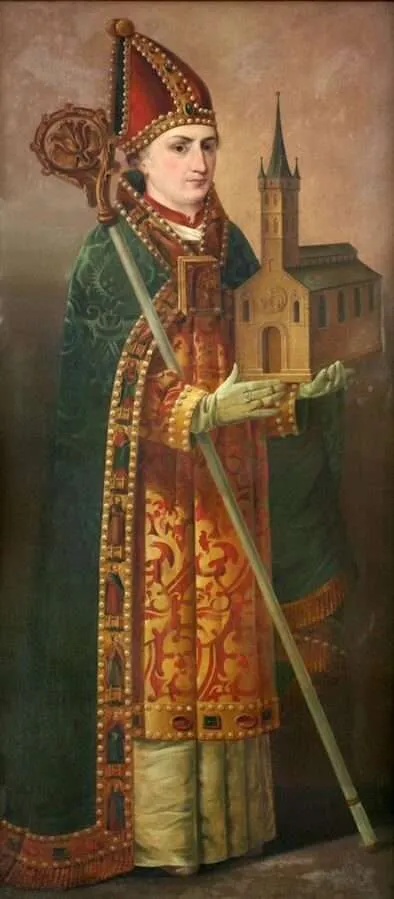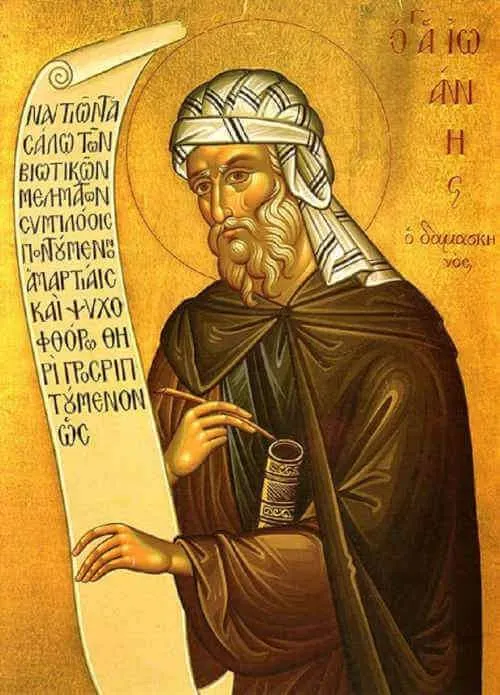Saint Charles Lwanga was a member of the Baganda tribe. He was born in the Kingdom of Buganda, the central and southern part of modern Uganda, and served as chief of the royal pages and later major-domo in the court of King Mwanga II of Buganda. He was baptised by Pere Giraud on 15 November 1885.
He was a Ugandan convert to the Catholic Church who was martyred with a group of his peers and is revered as a saint by both the Catholic Church and the Anglican Communion. The persecution started after Mwanga, a ritual pedophile, ordered a massacre of Anglican missionaries, including Bishop James Hannington who was the leader of the Anglican community. Joseph Mukasa Balikuddembe, the Catholic major-domo of the court and a lay catechist, reproached the king for the killings, against which he had counseled him.
The king called a court assembly in which he interrogated all present to see if any would renounce Christianity. Led by Lwanga, the royal pages declared their fidelity to their religion, upon which the king condemned them to death, directing that they be marched to the traditional place of execution. Three of the prisoners, Pontian Ngondwe, Athanasius Bazzekuketta, and Gonzaga Gonza, were murdered on the march there. Twelve Catholic boys and men and nine Anglicans were then burnt alive.








